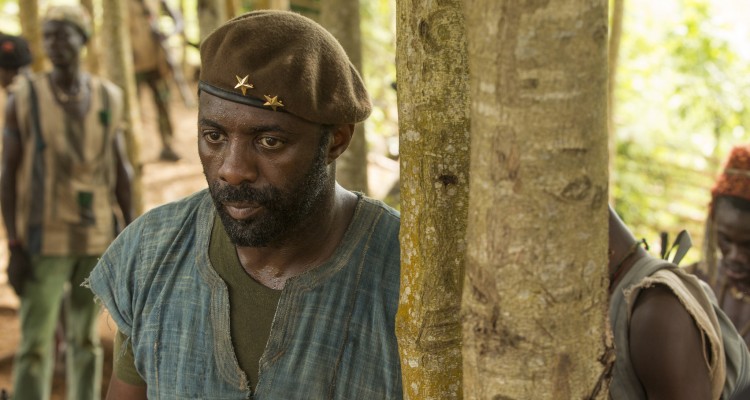Last week, Cannes Film Festival honcho Thierry Fremaux issued a love letter of sorts to Amazon, which has five films at the fest, enthusing, “They are good for cinema. Amazon and the people in charge of cinema at Amazon — the people who bought Woody Allen and Nicolas Winding Refn — they are movie buffs.” Many perceived this to be shade thrown at Netflix, which has zero films hitting the Croisette, but Ted Sarandos has responded and vigorously defended the streaming company’s slate, and makes it clear festivals and awards are not the priority of their business model.
“We are releasing a slate of films. It’s not a festival strategy, it’s not an awards strategy,” he told Deadline. “Some of the movies in that slate are awards driven and festival friendly films, but it’s definitely not the driver of what we’re doing. We’re making real movies, big films with great filmmakers like David Michod and David Ayer, Christopher Guest, Bong Joon-ho. These are some of the greatest filmmakers working today, who have opted into this model so they can reach big audiences without making a financial sacrifice. Which is great for consumers, great for filmmakers, and great for film, ultimately. In general, that [festival] ecosystem has been very open and inviting to us and by that I mean Venice, Sundance, Telluride. I would look at this as a fairly isolated bit of frostiness, if it’s happening at all. We didn’t really target any films for Cannes, so it’s not like we had some organized effort to be in Cannes that didn’t work out, or that we were blockaded in any way.”
Expanding upon his point, while Sarandos is grateful to the festivals that have screened their programming, he has a real issue with current method by which arthouse films open in limited release, and play to a niche audience. For a global company like Netflix, that approach simply doesn’t make sense.
“I think what we are doing is so strong and so good for film. You know, I’m not willing to play the game if it ultimately bad for consumers and ultimately, the old distribution models, even for festival-centric movies, are bad for consumers. For me to withhold access to our 81 million subscribers, so that a couple hundred thousand…literally a couple hundred people can see the movie in a theater, it makes no sense, business or otherwise,” he said. “As the subscriber base here grows, our ability to reach even greater audiences for smaller, more interesting films increases. The idea that you optimize for a couple dozen screens, I don’t understand the sensibility of that. The independent film world has suffered from a lack of scale, from its inception to today. Todd Solondz, Whit Stillman and Woody Allen are great filmmakers, but most people don’t get to see their movies. At the time they are spending marketing, when critics are reviewing the films, that is the time people should be able to go out and see it, so that they can be part of the dialogue… I get that there’s a romance to being on the big screen. But there is an economic trade off that works to make independent cinema smaller, not bigger.”
And in a sense, Sarandos is absolutely right. Independent and arthouse films are stuck in a traditional cycle where even a filmmaker like Woody Allen has to routinely get actors to work for scale, and work with a limited budget, because his films are only expected to make a certain amount of dollars, based on a release model that has been unchanging for years. And for a lesser known director, who has to work extra hard to break into a cinematic marketplace crowded by blockbusters, it can be even more difficult to raise financing, make a movie, see it distributed and still turn some kind of profit.
However, while Sarandos may claim that festivals and awards are outside their main interest, for some filmmakers, it’s still something that’s greatly treasured. Screening your film at the Cannes Film Festival or winning an Oscar are significant career achievements, and Sarandos dismisses that part of the equation (particularly the former) as a “trade off” to reach a bigger audience. Moreover, challenging or provocative films are often helped by the advance buzz from a festival bow, that only helps when they go into release, theatrically or on Netflix.
Certainly, Sarandos is unafraid to rock the boat. While Amazon has made a vocal commitment that all of their films will play theatrically first, before hitting Amazon Prime, Netflix is standing by their day-and-date model for their original films. The industry hasn’t been very receptive, with some arguing the Oscar chances of “Beasts Of No Nation” were hurt when it went straight to Netflix, screening in only a few theaters, and was thus not perceived as an “awards movie.”
There’s certainly lots of food for thought here, and with the industry currently in flux, it’ll be interesting to see if Netflix’s approach is visionary, game-changing, or merely self-serving as they grow their business. Let us know what you think in the comments section.

